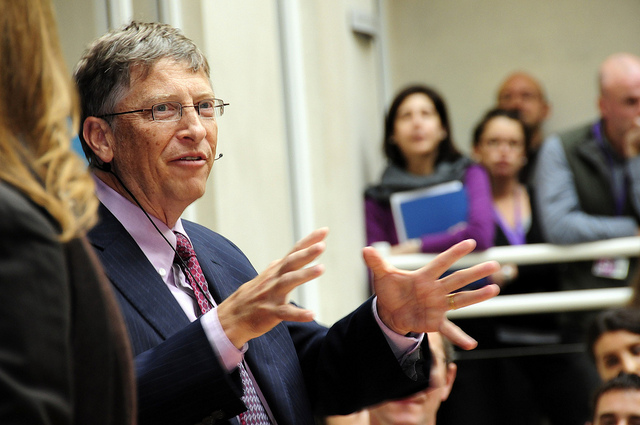This post has already been read 21852 times!
In a recent article in the New England Journal of Medicine, the world’s wealthiest man, Bill Gates, argues that we need a better global supply chain and warning system for infectious diseases, and suggests that something like the simulated ‘war games’ that have long taken place within and between the world’s military forces would help create such a system.
Gates writes:
It’s instructive to compare our preparations for epidemics with our preparations for another sort of global threat — war. The North Atlantic Treaty Organization (NATO) has a mobile unit that is ready to deploy quickly. Although the system is not perfect, NATO countries participate in joint exercises in which they work out logistics such as how fuel and food will be provided, what language they will speak, and what radio frequencies will be used. Few, if any, such measures are in place for response to an epidemic.
Wouldn’t a lot of industries benefits from such exercises? I can imagine a lot of scenarios where the competition and pressure of a ‘war game’ would result in better solutions, especially when we’re dealing with enterprise software vendors.
You can learn about how AI is helping consider “what-if” scenarios and proposing practical solutions:
Intelligent Control Towers: Optimize Your Supply Chain with AI & Advanced Analytics
Also, if you’re interesting in how technology is already changing the way healthcare is being delivered in Africa, check out the case study that details the transformation underway in Rwanda.
Recommended Posts
- Are Micro Fulfillment Centers the Next Frontier in Retail Logistics?
- Rethinking Defense Supply Chains with Network-Based Command Centers
- How to Use Predictive Analytics to Streamline Cross-Border Logistics
- AI Plus Humans for Resilient Freight Forwarding in a Complex World
- Modern Defense Supply Chains: The Essential Capabilities for Multi-Domain Operations
- The 4PL Revolution Roundup: Top 8 Opportunities for Today’s Logistics Providers - December 15, 2015
- Demand Sensing Round-Up (Blog Posts, White Papers, and Webinars!) - December 15, 2015
- Your Favorite Posts of 2015 - December 4, 2015
